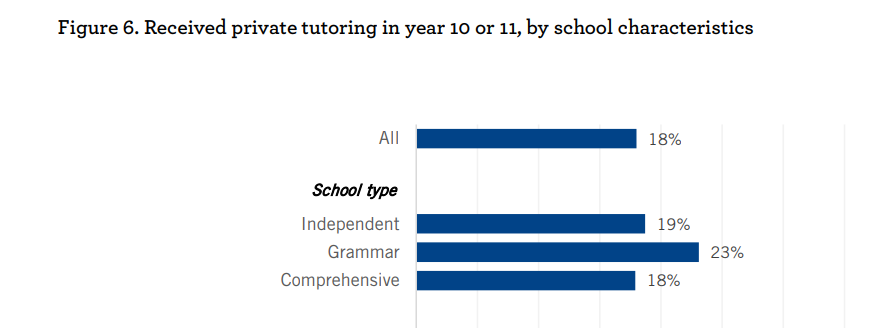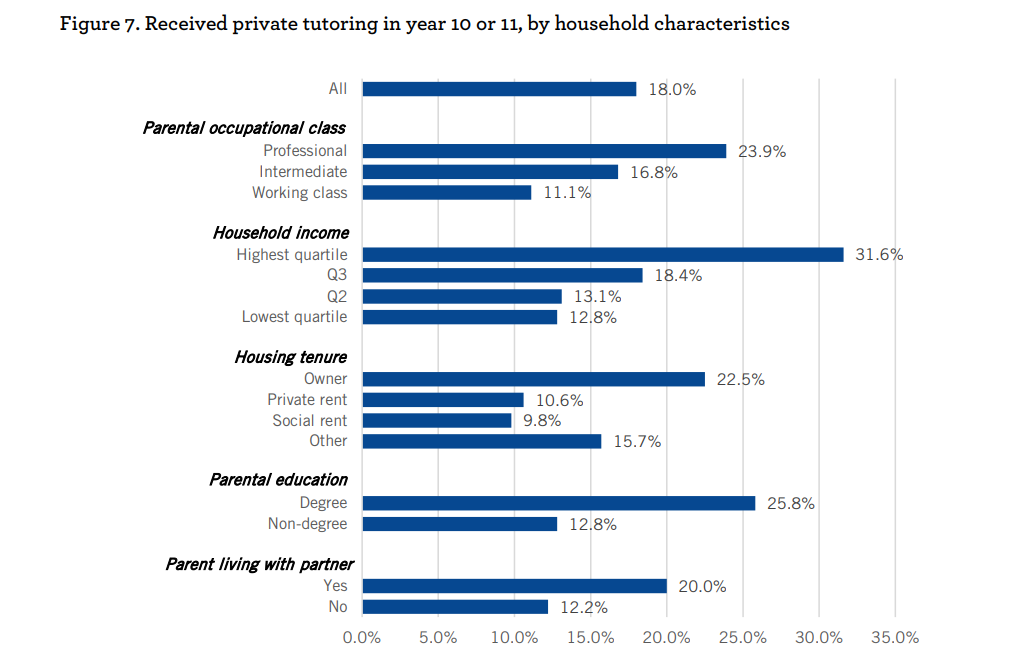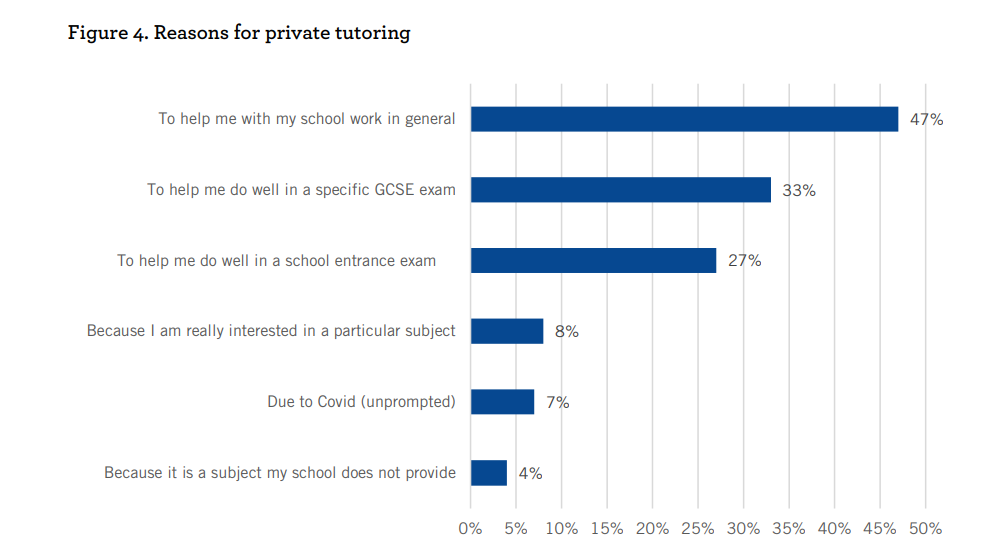New research from the Sutton Trust looked at trends in the use of private tutoring and found that 30% of young people aged between 11-16 report ever having had private tuition, while back in 2005 the figure was 18%. The study also looked at a sample of 13,000 pupils who were in Year 11 in 2020/21. It found that among this group 18% of all pupils undertook some private tutoring in Year 10 or 11. Interestingly, the study finds that grammar school pupils are more likely to have a tutor in their GCSE years than pupils attending other types of school.
The research found 23% of pupils at grammar schools had a private tutor in years 10 and 11, compared to 19% attending independent schools and 18% at comprehensive schools. While the overall figure for comprehensive schools was 18%, the rates of private tutoring varied significantly based on the Free School Meal rates at the schools, in the most affluent non-selective schools 31% used tutors, compared to 12% at the most deprived schools.

There are many reasons why grammar school pupils might be more inclined to use private tuition. The study shows the link between wealth, ethnicity and the education status of parents and how this affects the likelihood of hiring a tutor. Those in the top quartile of household incomes have the highest rates of tutoring, at 32%, with a significant gap to the second highest quartile at 18%. Pupils with a degree educated parent are also more likely to employ a tutor with 26% of those with a graduate parent receiving tutoring, twice as many as those without a graduate parent (13%.) It seems likely that many grammar school parents will fit within these two categories.
It is also possible that grammar school parents become used to hiring tutors because 11-plus tuition for primary school pupils is commonplace. There is also anecdotal evidence that some pupils who are tutored to pass the 11-plus struggle academically once admitted to grammar school, so perhaps tutors are hired to help them catch up.
The Sutton Trust research also showed the extent of 11-plus tuition in primary school. They surveyed pupils aged 11-16 and found 19% of Year 7s reporting having tutoring in the previous year, which is likely to include those receiving tutoring for the 11-plus exam. This survey of pupils aged 11-16 also showed that 27% of those who had received private tutoring reported that it was for a school entrance exam.
Grammar schools are praised for their great results (which are mostly a product of admitting only the pupils likely to get great results!) But, another factor in these superior results might be that so many pupils are using private tutors in their GCSE years. Do grammar school results entirely reflect the school’s efforts, or are they also a product of this tuition? It seems clear that grammar school parents are not wholly convinced that the school alone will help their sons and daughters achieve good grades.
Private tutoring reinforces the advantages of pupils from well-off families, and it adds to the attainment gap. Kevin Courtney, joint general secretary of the NEU, said of this research, “The imbalance between additional tutoring received by the most affluent students and the least affluent requires urgent attention and is likely to exacerbate existing educational inequalities.”
Read the report in full HERE.







